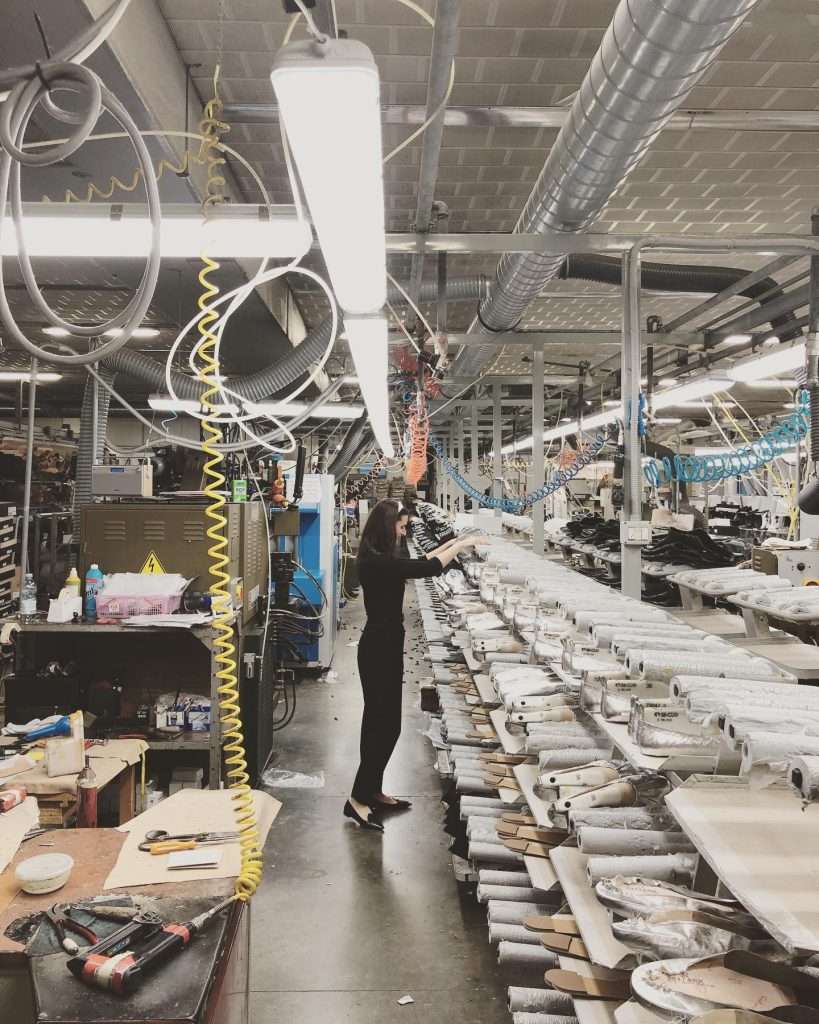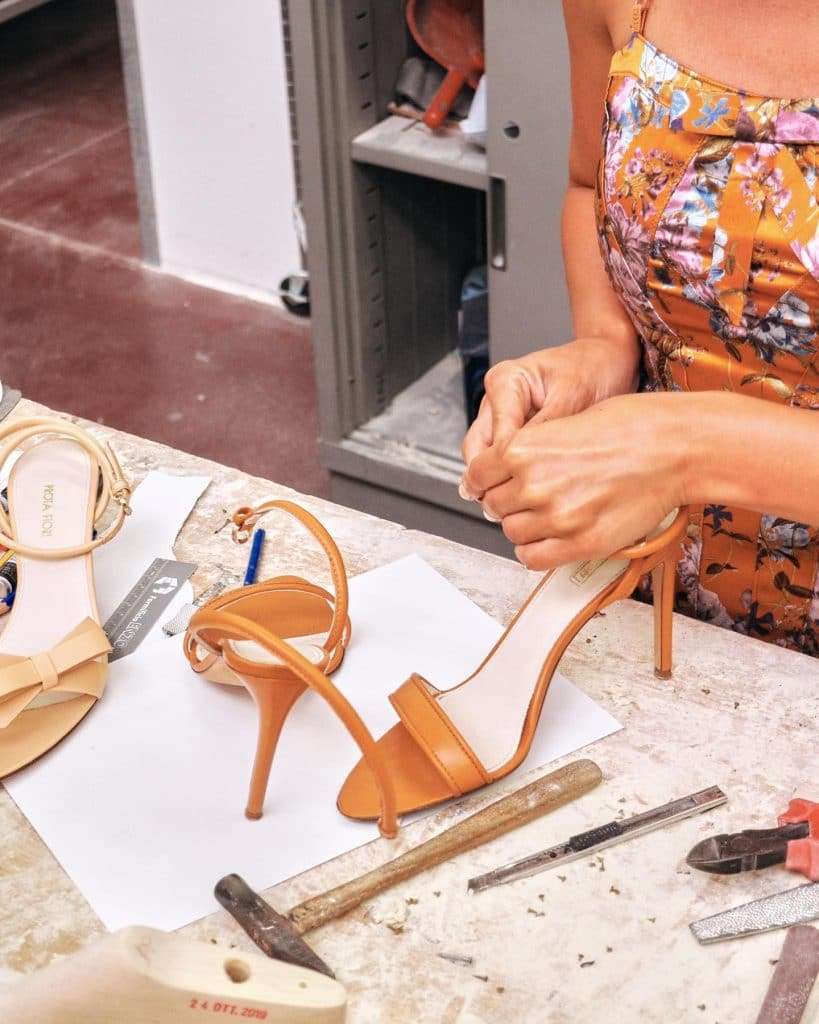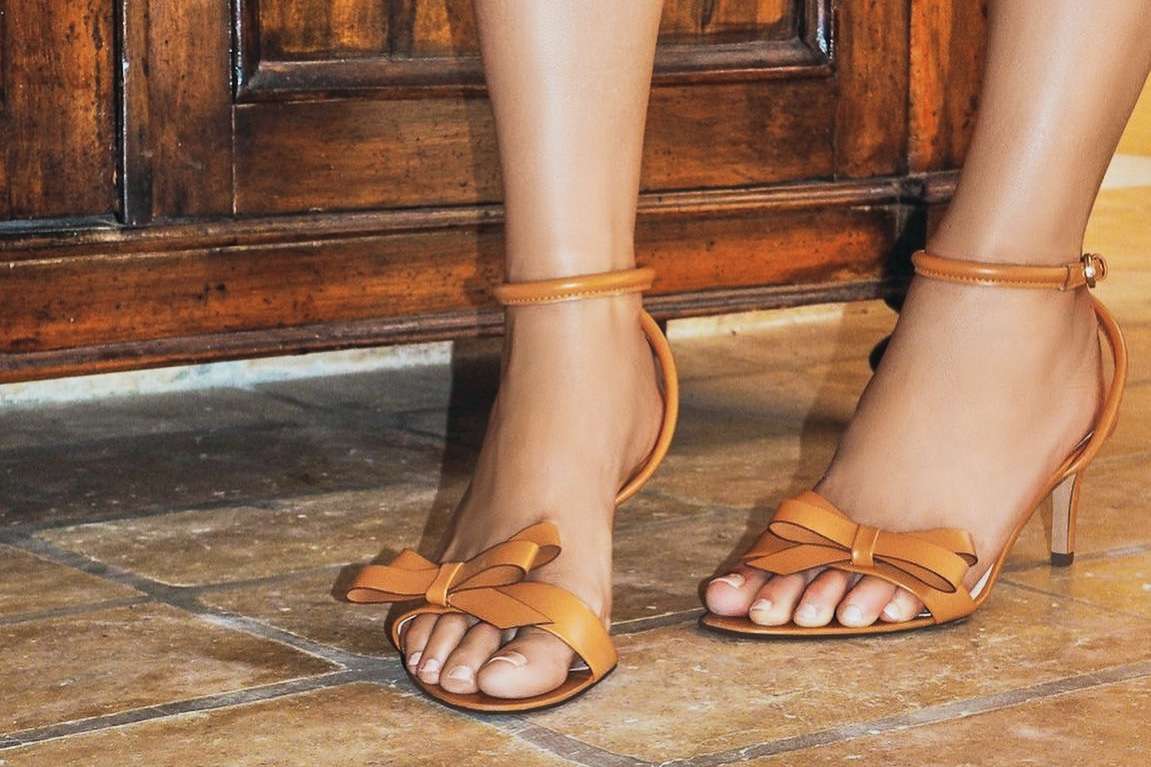The latest fashion label to earn B Corp status, Italy’s Prota Fiori is working to preserve the country’s history of sustainable, luxury shoemaking.
Jennifer Stucko founded Prota Fiori, which translates to “protect the flowers” in 2018. Driven by a commitment to make the fashion industry less toxic, she helped to pioneer a shift aimed at encouraging conscious consumerism without having to sacrifice style or quality.
“Prota Fiori reflects what I know, what I love, and what I believe in,” Stucko told Forbes. Stucko came to the label after a decade of working with some of the industry’s best-known brands including Italian luxury houses Valentino and Giorgio Armani. She knew Italian manufacturers and suppliers particularly well. And as an Italian-American, there was a heritage angle to embrace, too.
B Corp
The company has now earned its B Corp status, a mark of excellence for social and sustainability criteria. Last year saw French luxury label Chloé earn the mark; Paris-based luxury secondhand platform, The Vestiaire Collective, also earned its B Corp status.
Prota Fiori joins fellow footwear brand Aera, which became the first luxury footwear brand to earn the mark last year. Prota Fiori is the first Italian and woman-owned footwear brand with the distiction.
Stucko says the B Corp status matters because shoes are just an entry point to being a force for good.
“My mission is to create an authentic sustainable luxury brand where accountability and expectations are met beyond our product. I set out on the challenge to do just that by pursuing Certified B Corporation status, hoping to set the trend for accountability in the fashion industry.”
She says the company has only “scratched the surface” of what she is aiming to do. Set up as Public Benefits Corporation, Prota Fiori is legally required to put its public benefits before profit.

“Our core commitments are to have a positive effect on the environment, implement sustainable business practices and promote women in business,” Stucko says.
“We were able to provide due diligence for the rigorous B Impact Assessment which led to our B Corp Certification, however, we have room to grow, and we will continue to apply the BIA roadmap and measurable environmental focused assessments further into the DNA of Prota Fiori.”
Prota Fiori works with unique materials for its shoes, sourcing sustainable leather made from upcycled apple and grape skins, by-products of juice and wine.
“We consider Prota Fiori to be somewhat of an innovation lab as we are always sourcing, testing, and producing new sustainable raw materials to improve the circularity of our footwear, which I hope to later apply to other fashion categories,” Stucko told Forbes.
“Today, our shoes can be considered over 80 percent made of premium quality circular materials. These materials obtain certificates such as USDA Bio-based Preferred Certification, Global Recycled Standard Certification, Global Organic Textile Certification, OKEO TEKO Certification, FSC Certification, PEFC Certification, Lenzing EcoVero Certification. With each shoe design, we work toward improving our sustainability.”
Italian shoemaking
To vet suppliers, Stucko says she starts by assessing companies for “shared values.”
“I have a checklist that weeds out suppliers that are not aligned with our DNA rather quickly. I ask for proof material being sourced from Italy (‘made in Italy’ is a core value) and applicable certifications for claimed circular materials. After evaluating if our values are aligned, I assess quality and scalability,” she says.
“Quality is a top factor, however, if the supplier does not fulfill the requirements based on our values, I will not assess the material no matter how aesthetically pleasing. Scalability is important because to make a big impact we must disrupt and replace the traditionally toxic fashion supply chains set in place with sustainable supply chains that we’re creating and envision growing with demand we’re experiencing from the industry and consumers alike.”

Materials are only part of the quest for sustainability, though. Prota Fiori’s mission is also built on an ethos aimed at preserving Italian craftsmanship, which Stucko says begins with the company’s own team.
“Our manufacturer is a 2nd generation family business, and we work with all Italian suppliers. We support local designers, Italian craftsmen, and do not work with suppliers or factories importing materials or footwear assembly from outside of Italy,” she says.
It’s not always easy, but Stucko says it’s a core value nonetheless.
“It is a challenge to source suppliers because there are very few who’ve been able to apply the rare mix of premium quality, technology, and sustainability to develop a raw material which can be applied to the artisanal know-how of designing luxury footwear, a very difficult category. It requires highly skilled shoemakers to produce a premium product that is durable and long-lasting yet also beautiful, well designed, and sustainable,” Stucko says.
“A big part of what I love is introducing innovation to the traditional shoe artisans for them to evolve and preserve their craft of Italian shoemaking.”


